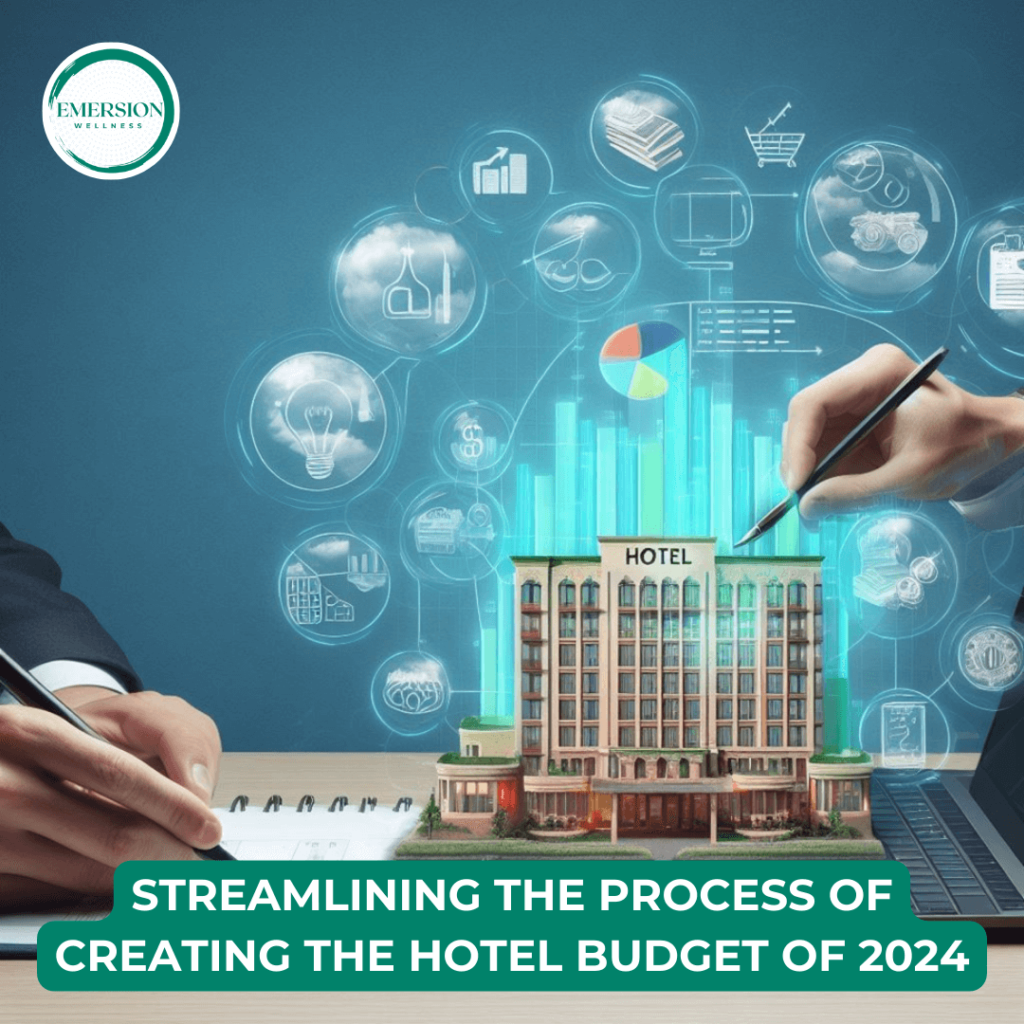As experienced hotel revenue managers, we know firsthand how daunting and stressful the annual budgeting process can be. Like many hoteliers, you may dread compiling reams of data, negotiating with department heads, and dealing with uncertain forecasts. But budgeting doesn't have to be an exercise in frustration.
In fact, with the right approach, you can streamline your 2024 hotel budgeting process for greater clarity, alignment, and success. The key is taking a strategic, collaborative method that leverages technology and empowers your team.
This article will share insider tips on overhauling your current hotel budgeting process. From revamping your data analysis to improving team communication, you'll discover proven ways to boost efficiency and set your property up for revenue growth in 2024. Let's dive in.
Table of Contents
Key Takeaways
- Leverage hotel revenue management software to compile and analyse data more efficiently
- Take a cross-departmental collaborative approach to budgeting
- Set clear timelines and meetings for each stage of the process
- Use past budgets and forecasts to inform realistic goals
- Continuously monitor budgets and adjust as needed throughout the year
Get Crystal Clear on Your Data Analysis Needs for Hotel Budget
When it comes to budgeting, faulty revenue data is your worst enemy. Insufficient data leads to poor forecasts, wiggle room for debate, and budgets that are way off target. For your 2024 hotel budget, step one is clarifying your property's data analysis needs.
What revenue data points do you require to set growth goals and forecast accurately? Common hotel KPIs include occupancy rate, ADR, RevPAR, pace reports, and booking window metrics. Beyond performance data, you also need deep market and competitor intelligence.
I advise leveraging a hotel revenue management software that compiles and automates your data in an easy-to-analyse dashboard. This eliminates manual number crunching and gives you the complete revenue picture quickly. With the proper data foundation, you can create budgets with surgical precision.
Take a Collaborative, Cross-Departmental Approach
Another budgeting mistake is the silo effect, where department heads operate in isolation and information gets fragmented. For 2024, break down silos by taking a collaborative, cross-departmental approach from the start.
Gather department leads for an annual budget kickoff meeting. Explain the budgeting process, timelines, and data needs. Most importantly, emphasise how their experience and insights are vital to set goals. Provide cross-training sessions on using revenue software so all teams can self-serve data.
Schedule regular check-ins to discuss challenges, goals, forecasts, and questions. Collaboration across departments results in buy-in, accountability, and realistic budgets. Appointing a dedicated hotel budget manager to oversee the process also improves alignment.
Set Clear Budgeting Timelines
Lack of structure in the budgeting process leads to endless debates, delays, and last-minute scrambles. For a smoother 2024, establish clear timelines for each phase, including:
- January - April: Gather historical data, set revenue meetings, analyse market data
- May - June: Department collaboration, align on goals
- July - August: Consolidate budgets, submit for approval
- September: Finalise 2024 property budget
- October: Communicate approved budget, training
Having structured deadlines creates order amidst the chaos of the budget season. It also gives your team ample time to provide input rather than cramming it all at the last minute. Adjust timeframes as needed to suit your budgeting rhythm.
Utilise Past Budgets and Forecasts
When setting growth and revenue goals, don't operate solely from imagination. Lean on historical budgets and forecasts to set realistic, achievable targets.
Analyse past revenue data for occupancies, rates, and pace during previous budget cycles. Review your 2023 goals versus actuals to date. Look at last year's forecasts versus actual performance.
Factor in current economic conditions and market trends as well. This analysis informs 2024 goals that align with your property's established patterns. Never rely on last year's budgets alone, though. Tailor for evolving needs.

Continuously Monitor and Adjust Along the Way
The benefit of hotel revenue management software is gaining instant access to performance data. Leverage this to monitor budgets versus actuals continuously all year long.
Schedule quarterly budget review meetings with your department heads. Compare budgets to real numbers and adjust targets as needed—set thresholds for when more considerable budget changes require approval.
Monthly checks ensure you catch any dramatically missed targets early. Have an actuals column alongside budgets in your reports to easily visualise variances. With continuous monitoring, you can correct quickly versus waiting until year-end.
Partner with Revenue Experts
As an added tip, don't hesitate to lean on external support. There's no shame in needing expert help overhauling your hotel budgeting process.
Trusted revenue management consultants act as an extension of your team. They provide an unbiased perspective plus proprietary data tools you may lack in-house. This enhances insights and alignment around goals.
Consider partnering with Emersion Wellness to complement your internal efforts. Our team brings decades of hospitality experience assisting hotels worldwide with budgeting challenges. We tailor proven frameworks that help streamline your process while boosting profitability.
Bottom Line
Streamlining your 2024 hotel budgeting process requires strategy and diligence. Avoid past frustrations by leveraging automation for better data, increased collaboration across departments, structured timelines, and continuous monitoring. Budgeting should empower your property, not cause dread. Use these tips to overhaul the process for greater clarity and revenue success next year.
Ready to transform your hotel's budgeting and exceed 2024 goals? Emersion Wellness provides custom revenue solutions for properties worldwide. Contact us today to get started. Here's to your most profitable year yet.
FAQs
Q: What is the first step to streamline my hotel's 2024 budgeting process?
The first step is getting obvious on your revenue data analysis needs. Determine essential hotel KPIs to provide accurate forecasts and goals for next year's budget. Leverage automation through hotel revenue management software to efficiently compile data in one place.
Q: How much time should be allocated for the annual budgeting process?
Ideally, you should allocate 8-9 months for the entire budgeting process. Critical stages are data analysis and preparation (January-April), department collaboration (May-June), budget consolidation (July-August), and finalisation (September). Build in buffer time, as delays often happen.
Q: How often should we monitor and adjust hotel budgets?
Continuously monitor your approved 2024 hotel budget versus actuals monthly or quarterly. Schedule review meetings to compare reports and adjust targets as needed. This allows you to quickly correct when projections are off rather than wait until year-end.
Q: What data from previous years is helpful for next year's budget?
Analyse past revenue data, previous budgets, and old forecasts when setting 2024 targets. Look at prior years' occupancy rates, ADR, RevPAR, pace reports, and booking windows. Review historical budgets and actuals—factor in previous forecast accuracy.
Q: How can we get cross-departmental collaboration on budgets?
Avoid department silos by having a kickoff meeting explaining the process, timelines, and goals. Provide cross-training in revenue software analysis. Maintain open communication channels for questions and input. Appoint a dedicated hotel budget manager to align efforts.
Q: What external help is valuable when creating budgets?
Partnering with hotel revenue management consultants provides an unbiased perspective, plus data tools you may lack. Experts like Emersion Wellness bring proven frameworks to streamline your process while optimising profitability.
Q: What hotel KPIs are most important for budgeting?
Key data points to guide accurate budgets include occupancy rate, ADR, RevPAR, pace reports, booking window metrics, and deep market and competitor intelligence. Automating this data is essential.
Q: How often should we adjust hotel budgets?
Continuously monitor your hotel's budget versus actuals on an ongoing basis, such as monthly or quarterly. Regular review meetings to compare reports and adjust targets as needed based on thresholds. This allows prompt course correction when goals are missed.
Q: What technology helps streamline hotel budgeting?
Hotel revenue management software that compiles and automates all your essential data points in one dashboard platform streamlines analysis for budgets. This technology eliminates manual number crunching.
Q: What should a budget kickoff meeting cover?
The annual budget kickoff should explain the process, deadlines, analysis needs, and goals. Emphasise the value of cross-departmental insights. Provide revenue software training so all teams can self-serve data.
Contact us for more details.
Also See: Which is the Best Revenue Management Software for Indonesian Hotels?

I'm Nathan Baws, a nutrition nerd, exercise and weight loss expert, and an unwavering advocate for good health. As the founder of Emersion Wellness, I'm passionate about crafting Seamless Weight Loss Programs to supercharge hotel revenue and transform lives. We've pioneered the World's First Plug & Play Weight Loss Programs for top hotels and resorts, sparking a wellness revolution. Beyond my professional journey, you'll often find me hiking, swimming, and riding the waves, embracing every moment in nature. Join me on this exhilarating journey towards diet, health and wellness.

